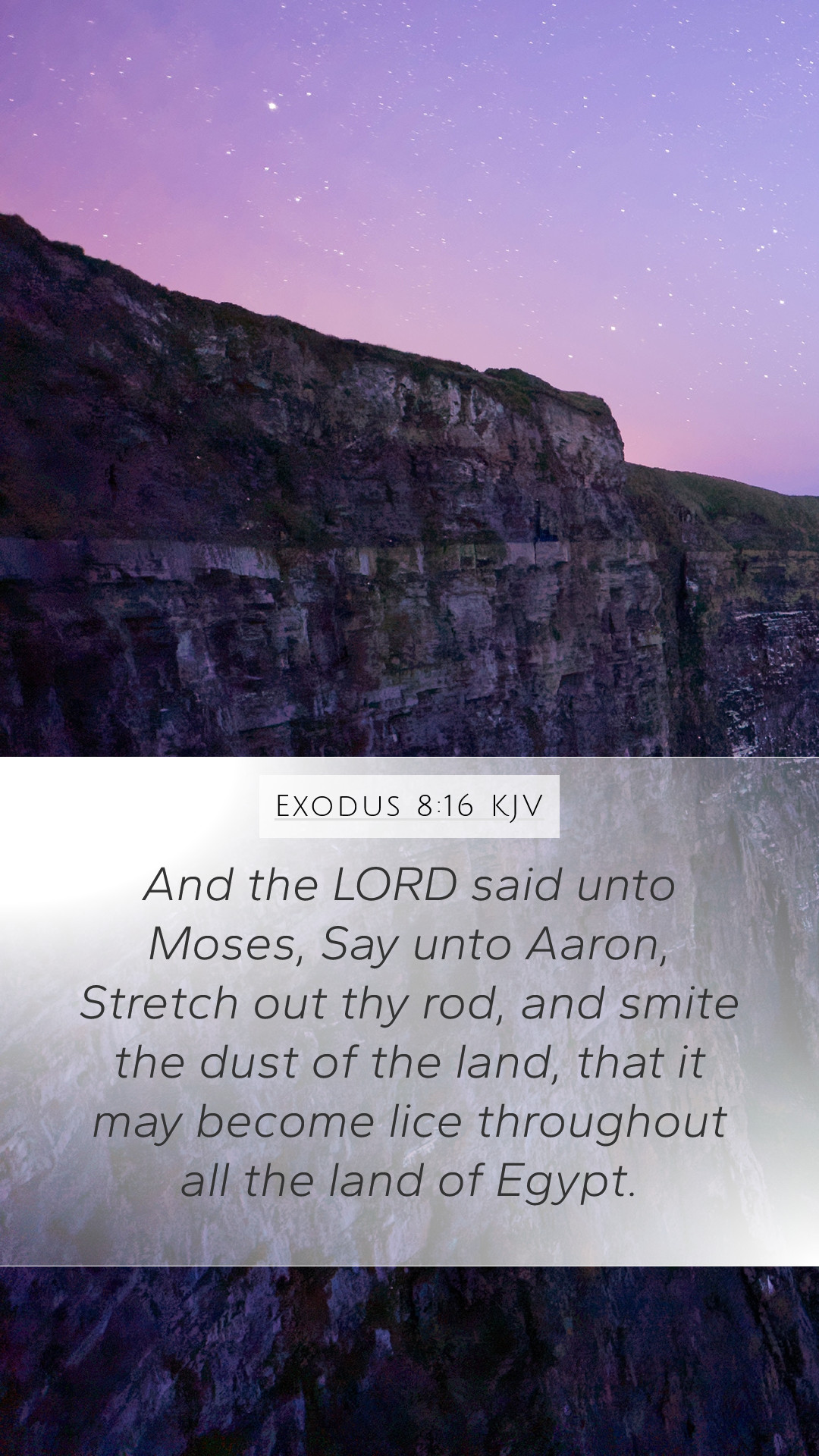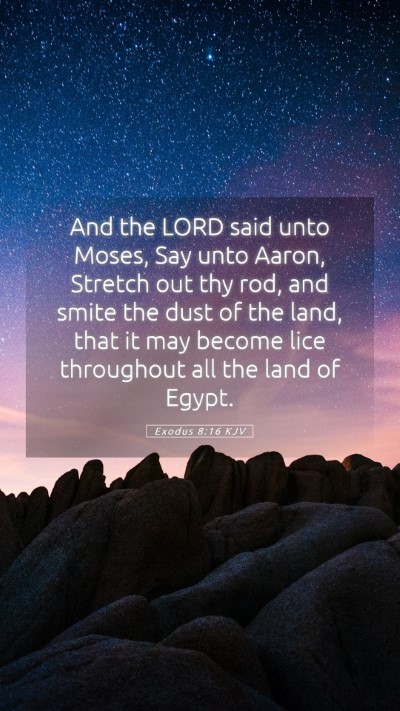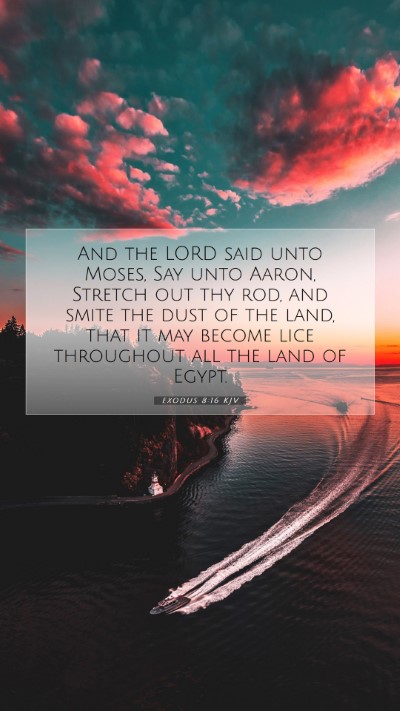Exodus 8:16 - Understanding the Scripture
Verse: Exodus 8:16
In Exodus 8:16, we encounter a pivotal moment in the narrative of the plagues of Egypt, specifically the plague of gnats. Here, the Lord instructs Moses to tell Aaron to stretch out his rod and strike the dust of the earth, which will turn into gnats throughout the land of Egypt.
Significance of the Verse
This action serves as both a demonstration of God's power and the consequences of Pharaoh's refusal to heed the Lord's command. The transformation of the dust into gnats illustrates the theme of God's sovereignty over nature and His ability to control the elements at will. It also emphasizes the seriousness and reality of God's judgment upon Egypt for their defiance.
Bible Verse Meanings
The meanings behind Exodus 8:16 can be explored through various commentaries:
-
Matthew Henry's Commentary:
Henry points out that this plague symbolizes the idea that even the smallest creatures are under God's control. By using something as mundane as dust, God demonstrates that no aspect of creation escapes His authority. This serves as a warning to Pharaoh about the totality of God's power.
-
Albert Barnes' Notes:
Barnes emphasizes the distinction made by God between the Israelites and the Egyptians. The gnats plague showcases how God can protect His people while delivering judgment upon their oppressors. This sectional suffering accentuates the importance of obedience to God's commandments.
-
Adam Clarke's Commentary:
Clarke provides a detailed examination of the implications of this miracle. He notes that the dust's transformation into gnats not only demonstrates God's might but also serves a practical purpose; it afflicts the Egyptians and shows their inability to replicate the miracle, reinforcing God's uniqueness and sovereignty.
Bible Verse Explanations
The actions depicted in Exodus 8:16 align with several larger themes throughout the Book of Exodus:
- Judgment and Deliverance: Each plague, including the gnats, highlights God's judgment against Egypt while simultaneously moving toward the eventual deliverance of the Israelites.
- God’s Authority: This verse exemplifies God's supreme authority over all creation, reinforcing the belief that He is the ultimate power that commands nature.
- Call to Repentance: The ongoing refusal of Pharaoh to recognize God's authority constitutes a key aspect of the narrative's moral framework, urging readers to acknowledge divine sovereignty.
Contextual Insights
To understand the broader context surrounding Exodus 8:16, we must explore adjacent verses and their implications:
- Exodus 7:17 - God's instruction to Moses to initiate the plagues raises the stakes against Pharaoh.
- Exodus 8:1 - The command for Moses to go to Pharaoh to plead for the release of the Israelites sets the stage for the various plagues.
- Exodus 8:18-19 - These verses demonstrate the failure of the Egyptian magicians to replicate God's miracles, further establishing divine authority.
Application of Exodus 8:16 Today
When considering how to apply the teachings of Exodus 8:16, there are several important lessons:
- Recognizing God's Power: Acknowledge His influence over all aspects of life, including the seemingly insignificant.
- Understanding Consequences: Reflect on how choices and disobedience may lead to judgment, both individually and collectively.
- Seeking Divine Guidance: Turn to God in all matters, recognizing His sovereignty as the ultimate authority in our lives.
Related Cross References
For a comprehensive study, the following scriptures enhance understanding and provide supporting context:
- Genesis 1:26: God's sovereignty in creation.
- Exodus 7:10: The initiation of the signs before Pharaoh.
- Psalm 105:31: Reference to plagues and God’s power.
Conclusion
Exodus 8:16 is rich in meaning and significance, embodying themes of judgment, sovereignty, and the dire consequences of defiance against God. Through the insights of respected biblical commentators, we gain a deeper understanding of this critical verse and its implications for our lives today. For those engaged in Bible study groups, online study resources, or personal reflection, this verse serves as a powerful reminder of God's control over all creation and His call to obedience.


